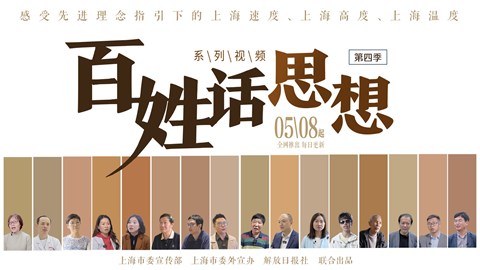Mutual benefits: six decades of Sino-French friendship

Christophe Lauras, president of the French Chamber of Commerce and Industry in China
Q: Can you give a brief introduction of the current Sino-French business relationship?
For the past six decades, the enduring friendship between China and France has developed into a robust and mutually beneficial relationship. This longstanding partnership has transcended the realms of economy, education, culture, tourism, science, and beyond.
As we commemorate the 60th anniversary of our diplomatic ties, the bond between our two nations remains unwavering, fortified by a history of positive collaboration. Notably, our relationship thrives on openness, as we engage in frank discussions to address our differences in a constructive manner.
Q: What's your opinion about business sentiment for French companies in China?
French companies have been a part of China's development for a very long time and our French Chamber in China counts more than 1,600 registered enterprises. Regular polls are conducted among these companies and the latest one reflects a prevailing sentiment of cautious optimism within the business community regarding the Chinese business climate.
This latest survey underscores this positive outlook for the next three years, despite some expressed concerns about economic slowdown and a somewhat opaque regulatory environment. Encouragingly, a substantial number of French companies are gearing up to escalate their investment efforts in the near future, signaling a positive trajectory for our collaborative endeavors.
Q: What kind of momentum will country-level dialogue and exchange provide for French small and medium-sized enterprises to further capitalize business opportunities in China?
Participating in country-level dialogue and exchange initiatives serves as a powerful driver, substantially enhancing opportunities for French small and medium-sized enterprises in China. Very recently, Mrs Gregoire, the French Minister for Small and Medium Enterprises, was the very first French minister to visit China in 2024. Recognizing the heightened competition faced by SMEs and the challenges posed by navigating an occasionally opaque regulatory environment, prioritizing their needs becomes paramount. High-level discussions are anticipated to play a pivotal role in addressing these concerns, paving the way for a more favorable and transparent business landscape for French SMEs operating in China.
Q: How are French companies responding with shifting consumer demands and rising competition from local players, especially in the consumer goods/luxury sectors? What are their plans to strengthen cultural/trade exchanges and industry dialogue besides business expansion initiatives?
French luxury and consumer goods companies in China have consistently demonstrated exceptional agility in adapting to the ever-changing trends and consumer patterns. Their proactive approach involves the implementation of key localization strategies, such as tailoring products to align with Chinese preferences, infusing culturally relevant elements into marketing campaigns, and establishing profound connections with the local consumer base. In addition to these strategies, these companies actively engage in strategic partnerships and collaborations with key local players. This collaborative mindset not only enhances brand visibility but also fosters a deeper understanding of the local market dynamics. Importantly, they have made substantial investments in technology and innovation, recognizing the pivotal role of staying ahead in a dynamic market.
The sector as a whole has long recognized the imperative to deliver a China-specific consumer experience. Through their commitment to quality, rich history, and unparalleled know-how, these companies offer a unique and appreciated added value for Chinese consumers. The ability to seamlessly blend tradition with innovation positions French luxury and consumer goods companies as leaders in providing a bespoke and culturally resonant experience to the Chinese market.
Q: What are the opportunities for French companies as China seeks carbon neutrality and environmentally friendly practices?
In my views, the decarbonization of the environment stands out as one of the most significant opportunities for French companies in China in the years ahead. France has positioned itself as a global leader in green development, and our enterprises are at the forefront, leveraging their expertise, cutting-edge technology, and advanced sustainability practices. We firmly believe that the future success of French companies in China lies in their commitment to ESG principles.
Our companies are poised to showcase sustained technological leadership across key sectors pivotal to achieving carbon emission objectives. These include sustainable architecture, forward-thinking urban planning, state-of-the-art waste recycling, innovative construction materials, water treatment solutions, non-fossil energy initiatives, green banking practices, low-carbon food production, efficient public transportation and clean mobility.
The essence of our strategy is rooted in a long-term vision, where French companies continue to spearhead advancements that align with environmental sustainability. This commitment to innovation and responsible business practices not only positions France as a trailblazer in green technologies but also underscores our dedication to creating a more sustainable and eco-friendly future.
Q: At the time we celebrate the 60th anniversary of the establishment of diplomatic relations between France and China, what's your vision of the future?
The enduring spirit of dialogue that has long characterized the relationship between our two nations gives me great confidence regarding the continued strengthening of partnerships between France and China. This mutual commitment to dialogue serves as a cornerstone for fostering robust ties, grounded in a spirit of positive reciprocity and intelligent development.
The foundation of positive reciprocity underscores the notion that, as each country contributes to the partnership's growth, there is a shared benefit and advancement for both. This reciprocal dynamic ensures a sustainable and balanced development, reflecting a mature relationship built on trust and shared goals.
Moreover, the commitment to intelligent development implies a strategic and thoughtful approach to collaboration. Both nations bring unique strengths, experiences, and innovations to the table. By combining these assets intelligently, we can create synergies that drive not only economic prosperity but also technological advancements, cultural enrichment, and societal progress.
















